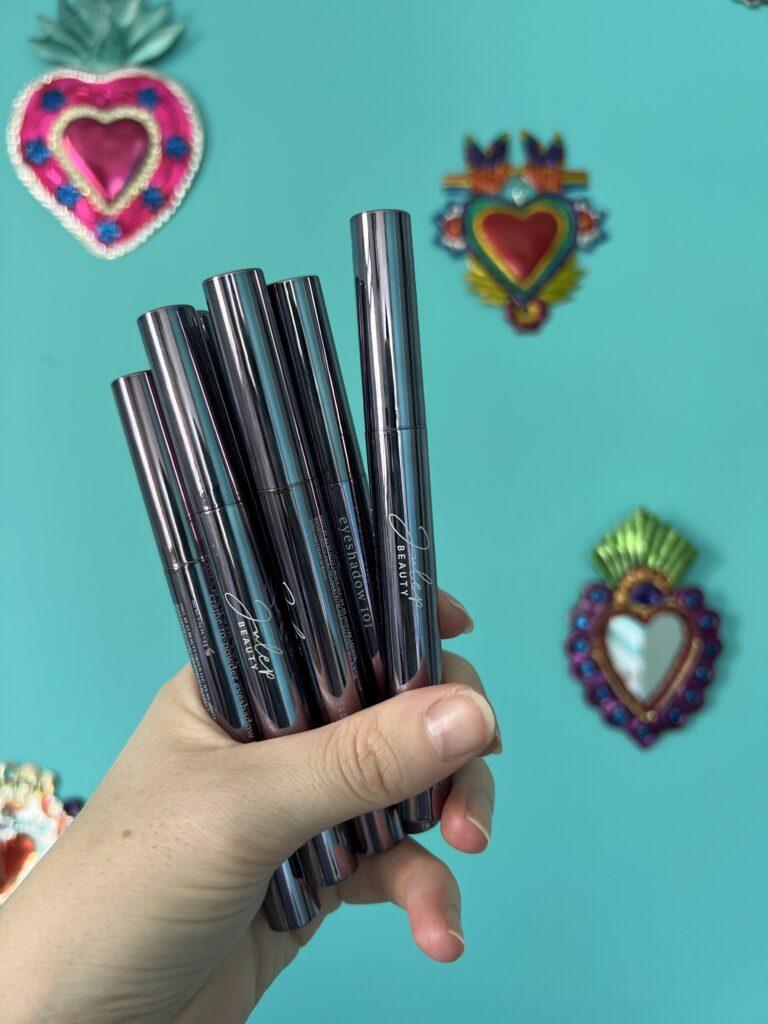Benefits Of Mineral Sunscreen
The benefits of mineral sunscreen for sun protection are far and wide. Ask any dermatologist, and they will tell you that wearing sunscreen daily is the best anti-aging hack you can do for your skin. And the best part is that mineral sunscreen costs a lot less than expensive lasers, injectables, or surgeries. Yet it’s equally effective at preventing aging and skin cancer as well as wrinkles and sun spots.
It’s no secret that the Earth is getting hotter and hotter (frightening, really), and that the ozone layer is getting thinner and thinner. That means that the sun’s rays are more easily traveling through the ozone and landing on your skin—which makes broad-spectrum protection and sun care more crucial than ever.
With stronger rays comes more sun damage. The benefits of mineral sunscreen allow for adequate protection from harmful UVA and UVB rays. And in case you weren’t aware, there’s more than one type of sunscreen on the market today—there are mineral sunscreens and chemical sunscreens. I will be writing all about the benefits of mineral sunscreen, also referred to as physical sunscreen, compared to chemical sunscreen, plus the downfalls between the two as well.
Benefits Of Mineral Sunscreen
What Is Mineral Sunscreen?
A mineral sunscreen is not the same as a chemical sunscreen. A mineral sunscreen uses ingredients that sit on the top of your dermis and protects your skin. Those ingredients create a physical barrier between your skin and the sun’s rays. Chemical sunscreens, on the other hand, use chemical ingredients to soak into your skin, and those ingredients will absorb the harmful UV rays. This prevents your skin from burning or getting sun damage—which can lead to premature aging.
The most common active ingredient found in mineral sunscreens is oxide. More specifically, zinc oxide and titanium dioxide. For chemical sunscreens, you will find one (or many) of these ingredients that work to absorb UV rays: oxybenzone, octinoxate, cinoxate, dioxybenzone, homosalate, octisalate, octocrylene, and avobenzone.

Although there are a lot of benefits of mineral sunscreen, the application process of these formulas aren’t always the most seamless. The biggest issue that many formulators face when creating a mineral sunscreen is that they can leave a pretty bad, ashy white cast on the skin. Obviously, this is not ideal for folks with darker skin tones. This is a huge reason why many folks have traditionally reached for chemical sunscreens. These types of sunscreens contain ingredients that absorb into the skin much better than titanium dioxide and zinc oxide, and don’t typically leave a white cast.
Thankfully, advancements in technology have allowed mineral sunscreens to go on pretty clear and not leave an unsightly white cast. However, there are still some formulations out there that miss the mark and aren’t optimal for all skin tones.
5 Mineral Sunscreen Benefits
They are gentle on sensitive skin.
Mineral sunscreens typically use gentler ingredients than chemical sunscreens. Both titanium dioxide and zinc oxide are known to be gentler on skin, so they are preferable for folks who are easily irritated.
They are less harmful to the planet.
There has been a big issue with ingredients used in sunscreens damaging and killing coral reefs and other marine life around the world. Mineral sunscreens are less likely to contain ingredients that might damage coral reefs and wildlife in the ocean than some chemical sunscreens.

They are effective immediately.
Do you ever wonder why the directions on a chemical sunscreen instruct you to wait 15-30 minutes after application to go out in the sun? It’s because chemical sunscreens need that amount of time to fully absorb into the skin and be effective in protecting your skin from sun damage.
This isn’t the case with mineral sunscreens. Because they are a physical blocker, they will begin to work immediately upon contact. You don’t need to wait to go out in the sun if you are using a mineral sunscreen.
They are more stable in sunlight.
Chemical sunscreens are more likely to degrade quickly if exposed to sunlight. The benefits of mineral sunscreens are that the ingredients are more photostable and less likely to degrade or break down when exposed to sunlight.
Better for children.
Because mineral sunscreens are more gentle on the skin than chemical sunscreens, they are more suitable for young children and babies. You can apply mineral sunscreen to a baby that’s as young as six months old. If you’re looking for something that’s completely fine for babies, though, I’d suggest taking a gander at our list of best non-toxic sunscreen.








